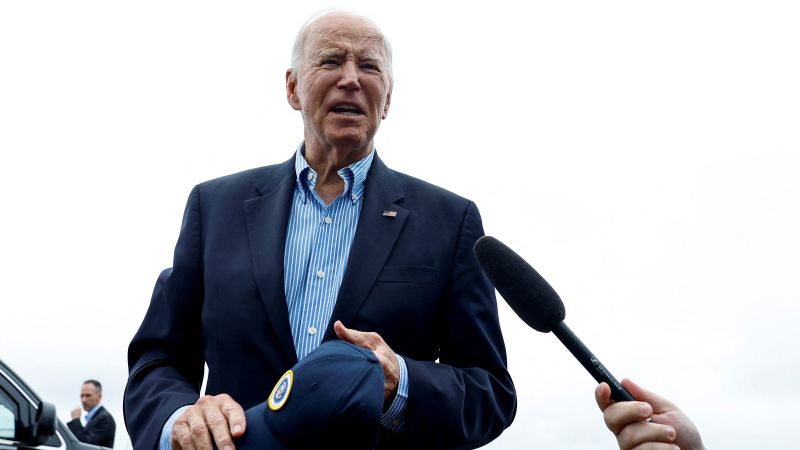President Joe Biden is counseling Israel to take a measured and proportional response to the recent barrage of Iranian ballistic missiles, in order to prevent further escalation of the conflict in the region. American officials are not trying to persuade Israel to hold back on retaliating against Iran, presenting a notable difference from previous interactions. Instead, Biden hopes Israel will respond while avoiding actions that could prompt further retaliation and lead to a full-scale war. Israeli Prime Minister Benjamin Netanyahu’s response to this advice remains to be seen, especially as his political standing appears more assured following recent successful efforts against Hezbollah in Lebanon.
Efforts by Biden to influence Netanyahu over the past year have been largely ineffective, with the two leaders not having spoken since August. The escalating tensions in the region have raised concerns about broader escalation, imperiling not just Israel but also the strategic interests of the United States. The recent attacks in the region, including the missile strike by Iran, have heightened the stakes for both countries, with attempts at brokering ceasefires proving largely fruitless.
The recent attack by Iran prompted Biden to call for a proportional response from Israel, as opposed to urging them to move on as was the case in April. While Israel acknowledges Iran’s actions and has launched limited counterattacks, a larger response is expected, though it’s unlikely to target Iran’s nuclear sites. Biden has made it clear that he does not support an Israeli attack on Iranian nuclear facilities, as it could lead to an out-of-control conflict. The United States is closely monitoring any potential changes in Iran’s nuclear program in the aftermath of the recent attacks.
Concerns over Iran’s nuclear program remain high, with the possibility of Iran bolstering its efforts following recent setbacks from Israeli operations. While there have been no significant changes in Iran’s nuclear posture, they have continued to produce fissile material over the past year. Despite the lack of recent changes, efforts are ongoing to monitor for any potential shifts in Iranian nuclear activities. The scope of the recent attacks did not result in any casualties among Israelis, but there are concerns over potential reprisals and continued tensions in the region, especially as Israel’s operation against Hezbollah continues.
The timing of Israel’s response is being closely watched, particularly with the Rosh Hashanah holiday providing some buffer for further developments. The possibility of prolonged anticipation in the region, along with ongoing operations against Hezbollah, adds to the tensions surrounding the situation. Both the White House and Israeli officials are aware of the implications of their actions in the coming weeks, with considerations for how the situation could impact the presidential election in the United States. The handling of the conflict and its implications on the race are being closely monitored by all sides involved in the crisis.


